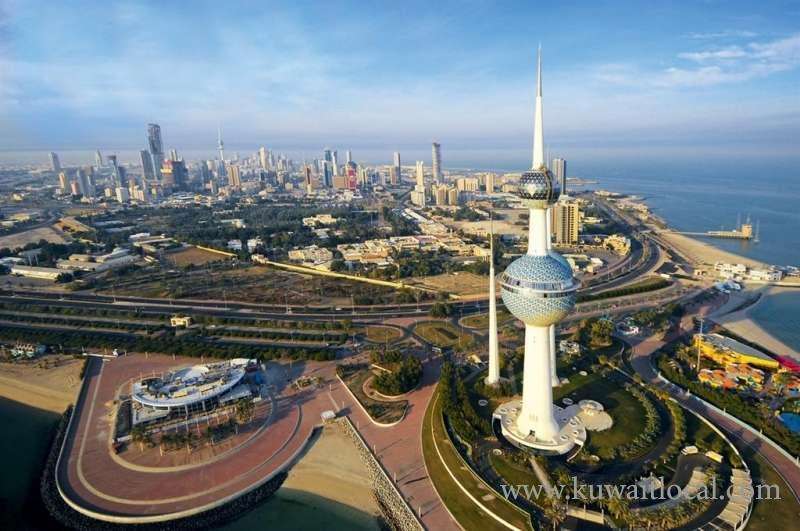Latest News
- Six Stores Shut Down In Jahra For Selling Fake Goods
- Peddlers Caught With Drug Pills And Crystal Meth
- PAFN Shuts Down Restaurants And Bakeries Over Violations
- MoI Officer And Lawyer Jailed On Fraud Charges For Bad Cheques
- Thousands Of Bangladeshis Gathered To Pray For Rain
- Kuwait University Symposium Addresses Student Counselors' Role I...
- Kuwait Affirms The Importance Of Group Work In Addressing Common...
- Urgent Call For Kuwaitization: Civil Service Commission Aims For...
- Kuwait Halts Work Permits For Egyptian Workers Amidst New Regula...
- Kuwait Weather Advisory: Strong Northwesterly Winds And Dust Ex...
- Kuwaiti MPs Express Concerns Over Halted Development Projects Am...
- Syrian Expat Teacher Detained For Allegedly Threatening Students...
Residents And Naturalization

For more than one reason, the number of my fellow citizens is almost equal to the number of residents, each of who has advantages and makes a difference when it comes to food, culture, art, talk and desire. Each party also has its own bitter complaints about the general situation, the different priorities and issues of concern to each party.
One of the most important things that predominate the expatriate, a word that many people do not like (so instead of expatriate we will use the word resident) is the sense of unfairness when they are asked annually, for example, to visit the various authorities to renew their residence permit, after staying in the country for the past half a century.
Some of them bitterly wonder when this suffering will end and why not give them (who have stayed in the country for 20 or 25 years) residence permit for five or ten years so long as their security records are clean and as long as the state has the right to cancel. So why not grant it for a longer period and relieve them and the state institutions of a burden and hardship?
Non-Arabs and non-Muslims are not allowed to obtain Kuwaiti citizenship either by written law or by unwritten customs while some residents, Arabs and Muslims in particular claim Kuwaiti nationality as is the case in many other Western countries even if any of them sometimes lives there just for a few months, and this is of course an unfair comparison.
The Western countries grant nationalities to migrants or refugees on purely economic grounds. There is an urgent need for labor to make up the severe shortage among their citizens. These migrants will also create for themselves a job there that is needed and will therefore contribute to paying taxes.
Many of these countries such as Australia and Canada have natural resources that need to be exploited and vast unused areas of land. Its population is relatively large and cannot be altered or demographically influenced by values, denomination, and form or otherwise.
If we apply these matters to a small country of its size and population such as Kuwait, we find it unreasonable and unacceptable to grant citizenship to those who have remained in Kuwait for a year or even a hundred years as long as their existence does not constitute a real addition especially for the non-privileged one way or another.
Every nationality granted in Kuwait will constitute from the first day a huge burden on the already exhausted resources of the State. Any naturalization process will have a serious demographic impact on the overall population structure, and we have clearly seen the devastating and dangerous results of all the naturalization processes that have taken place in the last few years which have harvested its bad inedible fruit on every sector today and for a hundred years ahead.
Therefore, we reiterate that we support the easing of residence permit procedures for the expatriates or the residents. However we are against naturalization. The current demographic structure has reached a dangerous level in terms of the security of the state and its social fabric and cannot be addressed through naturalization.
Neither the state’s resources, nor its structure can sustain this experience. It is enough to say that some of the absurdity of the randomization made by some in the process of naturalization that took place in the last few years, which does not seem to be easily reversed.
With regards to yesterday’s article, Bloomberg donated $1.5 billion to Johns Hopkins University to pay for the poor students’ tuition fees at the university and he did not donate the money, for example, to his group of New York Jews, or to Israel, and he did not ask for any reward or a word of thanks. Where do we stand?
SOURCE : ARABTIMES
Trending News
-
 Kuwait Implements Home Biometrics Services Ahead O...
14 April 2024
Kuwait Implements Home Biometrics Services Ahead O...
14 April 2024 -
 Kuwait Airways Provides Update On Flight Schedule...
14 April 2024
Kuwait Airways Provides Update On Flight Schedule...
14 April 2024 -
 Kuwait Airways Introduces Convenient Home Luggage...
15 April 2024
Kuwait Airways Introduces Convenient Home Luggage...
15 April 2024 -
 Expat Residency Law Amended By Kuwait Ministerial...
20 April 2024
Expat Residency Law Amended By Kuwait Ministerial...
20 April 2024 -
 Gathering For Eid Al-Fitr Prayers: Kuwaiti Citizen...
10 April 2024
Gathering For Eid Al-Fitr Prayers: Kuwaiti Citizen...
10 April 2024 -
 Two Expats Are Arrested For Stealing From Salmiya...
17 April 2024
Two Expats Are Arrested For Stealing From Salmiya...
17 April 2024 -
 An Egyptian Expat Dies At Kuwait's Airport
11 April 2024
An Egyptian Expat Dies At Kuwait's Airport
11 April 2024 -
 Bay Zero Water Park Kuwait: Summer Season Opens Ei...
11 April 2024
Bay Zero Water Park Kuwait: Summer Season Opens Ei...
11 April 2024 -
 Kuwait Airways Resumes Flights To Beirut And Oman...
15 April 2024
Kuwait Airways Resumes Flights To Beirut And Oman...
15 April 2024 -
 Temperature Increases Cause Electricity Load Index...
21 April 2024
Temperature Increases Cause Electricity Load Index...
21 April 2024












Comments Post Comment